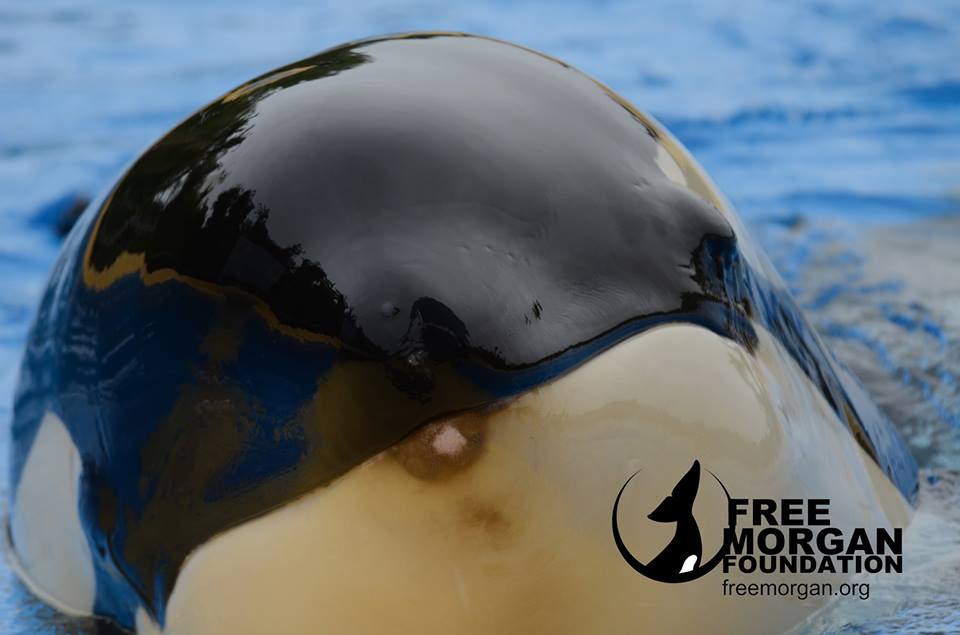|
From Russian Orcas: We have information from unofficial sources that three orcas were captured recently in the Sea of Okhotsk, Russia, by the same company that captured the orca Narnia in 2012. These orcas are believed to be being held with Narnia near Vladivostok. We will let you know when we find out more details about the capture and ultimate fate of these orcas.
0 Comments
New appeal hearing date for orca Morgan has been set for the 3rd December 2013. The High Court in Den Haag (The Hague) has informed the Free Morgan Foundation that Morgan’s appeal will be held at 1045, in the Chamber Unit A3, Kneuterdijk 22, Den Haag, Netherlands.
The schedule will only allow for 5 minutes for Morgan’s lawyer to present our case (and 5 minutes for the Ministry to present theirs). This will be followed by any questions the High Court Judges may have. The public will not, unfortunately, have the chance to comment or make submissions prior to the hearing, but we understand that you will be permitted to attend. We do hope that you will come along and show your support. The Court has up to eight weeks, after the Appeal hearing, to pass their verdict. https://www.facebook.com/photo.php?fbid=480284618745864&set=a.137415246366138.29319.137410949699901&&theater Have you seen it yet? We were incredibly excited yesterday to be pointed in the direction of a video made by the UK's Davyhulme Primary School Year 5 pupils and their teacher, Mr. Parkinson. In the video, the children ask several cutting questions of us. Each question is underlined by a simple theme: would we let this happen to them? The questions they ask will be answered with a resounding 'NO' by the majority of billions of people that we share our planet with. In fact, to give any other answer would be deemed anti-humanitarian and cruel. Any such acts would be considered as a grave infringement against human rights and in some cases, where these acts are part of a systematic practice, they might even been regarded as a crime against humanity. Okay, so that seems pretty straightforward - we are all in agreement. So what's the big deal? Well, the class are actually asking something else of us: but what if I was a whale, would it be okay then? Therein lies the problem - we are not all in agreement. Some say 'NO' but others say 'YES'. And for some reason, expert advice, as well as peer-reviewed and published scientific evidence, is being ignored, pushed aside and misinterpreted. Science has proven that free-ranging orca have long lifespans, not dissimilar to our own human lifespan - in captivity orca have a much shorter average longevity, more than halved. Science has proven that many free-ranging orca populations live in tight family units, travelling together their entire lives. Science has shown us that these different populations each have a unique culture and dialect - that they eat different prey-items and hunt, interact and socialise in unique ways. Science has revealed that these unique behaviours and vocalisations are transmitted from mother to offspring - orca learn by being taught (just like Year 5!). In a captive environment, orca are forced to live in artificial populations, sharing a confined space with individuals they would never mix with in the wild; they do not speak the same dialect, do not share the same culture, they do not eat the same food, they would never socialise or mate with each other in the wild and they do not always get along with each other. There have been a number of recorded occasions where captive orca have seriously harmed or even killed another individual within their artificial pod. In the wild, serious aggression between pod members has rarely been observed. There are also physiological implications. As well as their large size, wild orca swim vast distances each day and dive to depths that captive facilities cannot cater for. The concrete tanks negatively interfere with echolocation, the primary sense in orca and vocal communication between captive individuals is often minimal, including amongst orca types that would usually vocalise frequently in the wild. Orca are capable of abstract thought and problem solving; they are intelligent, sentient beings. Experts conclude that in captivity, orca suffer from sensory deprivation. Take a moment to explore the idea of keeping orca in captivity by watching this pertinent video from Mr. P and his Year 5 class: The science (what we know about free-ranging orca contrasted with what we know about captive orca) provides evidence which strongly suggests orca are not suited to a life in captivity. But some disregard this knowledge and say yes, if you were a whale, it would be okay. After learning about orca captivity from Mr. P, who recently watched the 'Blackfish' documentary, it is a simple, clear, logical answer for Year 5. The answer is a big, whale-sized resounding NO! Even if I were a whale, it would still not be okay to strip me of my dignity; make me perform tricks; feed me dead fish; force me to mix with individuals I don't get along with in a small space I can't escape from; it is not okay to leave me mentally unstimulated and bored; it is not alright to put harmful substances into my space; and it is not acceptable to cut my life short. We are not sure anyone would answer 'YES' to this next question: If it is acceptable to put the self-aware Orcinus orca species into captivity, is it okay to do the same with the self-aware Homo sapien species? For more information on Year 5's whale project, please visit the Davyhulme Year 5 blog - while you are there, leave them a comment! Orca in the UK
Orca Winnie (1977-2002)
An interesting take on orca captivity: How SeaWorld's Treatment of Killer Whales Violates Jewish Law -
http://forward.com/articles/183146/how-seaworlds-treatment-of-killer-whales-violates/?p=all#ixzz2e992gaLm Via Far East Russia Orca Project / Russian Orcas: While Russian businessmen are trying to catch new orcas for aquaria, Russian fishermen saved an orca which got stuck in their fishnet. This happened in the Sea of Okhotsk in July. — at Kamchatka, Sea of Okhotsk.https://www.facebook.com/photo.php?v=10151718350919934
|
Archives
January 2017
|


 RSS Feed
RSS Feed
